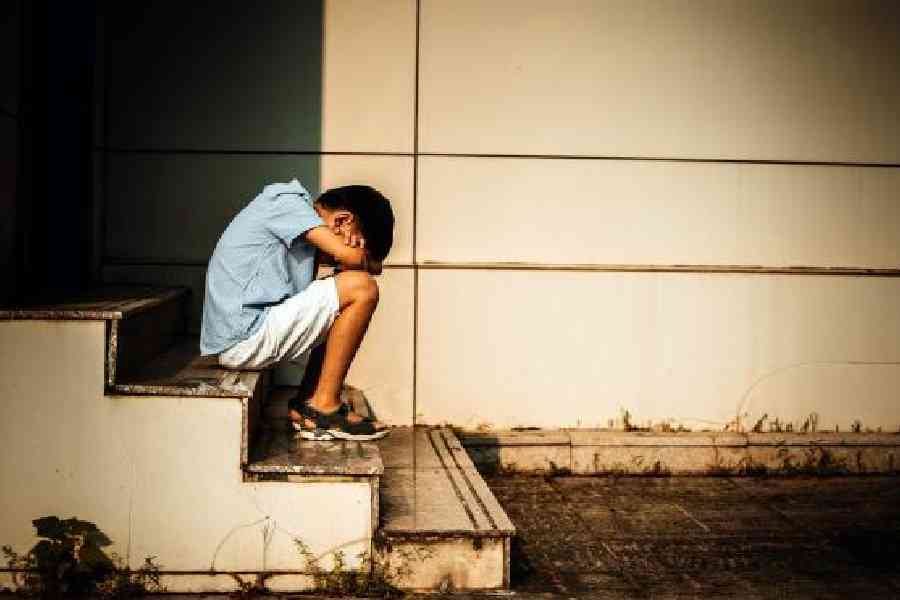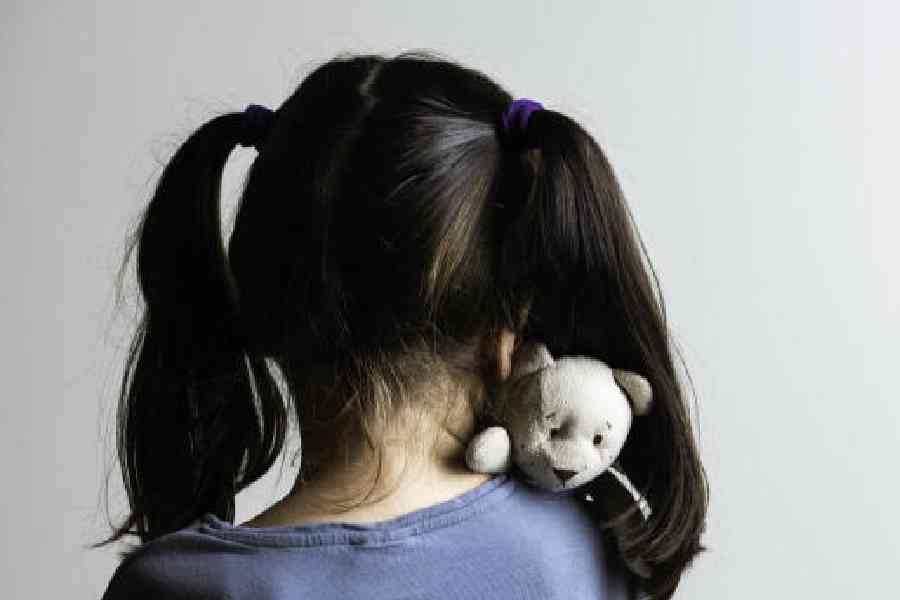Scenario 1. Imagine you are a school teacher. A 17-year-old boy in your class appears to have become distracted and unmindful. His academic output has declined, and you call him to the staffroom to have a conversation with him. During the conversation, you find out that he has recently broken off with his girlfriend of 18 months. They are of the same age. He appears to be heartbroken. He also discloses that he has had consensual sex with this girl on several occasions and had never anticipated that the girl will end the relationship.
Scenario 2. Imagine you are a doctor. A 16-year-old girl comes with her mother to your clinic asking for advice on emergency contraceptive pill for the child. The girl’s boyfriend was found with a condom in his bag by his parents. His parents called up the girl’s mother for “spoiling” their son. The girl insisted that the boy had used a condom, but her parents were unable to trust her. Hence, they brought her to see the doctor.
Scenario 3. Imagine you are a school counsellor. A 14-year-old girl is referred by her class teacher because the teacher noticed she was cutting her arms with a compass. On making further enquiries, it was found out that a household staff has sexually abused the girl on four-five occasions. You call in the parents. They are shocked, dismayed and enraged to find out what has happened. They sack the household staff, but the child and the family want the matter to end there. They do not want to lodge any police complaint against the abuser.
Mandatory reporting
The commonality in these scenarios is underage sexual activity, two of which appear to have been consensual and one non-consensual. The other troubling commonality in all these situations is that the children and their families do not want the police/law enforcement agencies to get involved.
The real conundrum in these scenarios actually concerns the person/s to whom the sexual activities/abuse were disclosed. What should the teacher, doctor and school counsellor do in each of these situations? It is a perplexing quagmire. From the perspective of the persons who found out about the events, his or her response is something of a catch-22 situation. The Indian law, as it stands, criminalises sexual activity like intercourse in under-18s.
In each of the three scenarios I have described above, the teacher, the doctor, and the school counsellor are legally bound to report the events to the police or any equivalent agencies. It is a criminal activity, and it has to be reported to the police. It does not matter what anyone else feels about it, that is, the child or the family can disagree about the reporting, but still, it has to be done. This clause of the Indian Penal Code is known as mandatory reporting. If one does not, the person (who is not reporting) can be sent to prison.
POCSO, well-intentioned but….
Let us look into the background of how this happened. In 2012, Indian Parliament passed a landmark legal provision for safeguarding children (under-18) against sexual abuse in all forms. POCSO (Protection of Children Against Sexual Offences) Act is a comprehensive piece of legislation which aims to protect and bring justice to children and families who have been affected by sexual violence/abuse. If you have been following the news about the agitation by our wrestlers, one of the cases against the alleged perpetrator was lodged under POCSO but it was later withdrawn.
POCSO is a well-intentioned law. However, there are two aspects within the law which pose immense problems for many of us. One, where it criminalises consensual adolescent sexual relationships, and second, where it compels everyone to report sexual abuse/activity in under-18s to authorities.
POCSO is intended to protect children against sexual offences. In the well-meaning intent to do so, it has inadvertently criminalised all forms of sexual activity between two adolescents. In a country where about 10-20 per cent of pregnancies in many states are in teenagers, criminalising sexual activity in under-18 is totally impractical. Many of my gynaecologist friends who work in rural areas mention that they are breaking the law every day by not lodging a police complaint when an under-18 comes to them for antenatal care. If they follow the law (POCSO) strictly, then they would have to immediately dial the police and report that the law has been broken. The logical conclusion of this is that it would lead to arresting the girl’s partner.
The law does not acknowledge that under-18s can fall in love and participate in mutually consenting sexual activities. POCSO criminalises all sexual activity between 18-year-olds. It is a completely flawed view, in my opinion.
Facilitate healing

Professionals working in the sphere of child and adolescent mental health, come face to face almost daily with children who have experienced sexual abuse
The second, and related, clause is known as mandatory reporting. What does it mean? It means that if as an adult you find out there is sexual abuse of any child, you must report it to the authorities concerned. In these situations, it is either the police or child welfare committee. In real life, this compulsion to report, irrespective of the consent of the child and family, causes ethical and moral dilemmas in many situations.
Child sexual abuse is rampant in our society and there is a cultural conspiracy of silence around it. There is also a wilful denial of the phenomena by adults, who are aware, but choose to ignore the brutal facts. Professionals working in the sphere of child and adolescent mental health come face to face almost daily with children who have experienced sexual abuse. A common misconception is boys are not sexually abused. They are equally, if not more abused than girls. As boys they find it harder to disclose abuse, we are not aware of this stark reality.
What do I do when I sit face to face with a young person who tells me that he/she has been sexually abused? I work together with the young person to facilitate healing and contain the terrible pain. It is a long, difficult and arduous process where respect and autonomy for the wishes of the child are paramount. In many of these situations, the child and family do not want to report the crime to the police and follow a legal recourse. They have other immediate priorities.
In some of these situations, with further conversations and counselling, the child/family’s unwillingness to lodge a police complaint can be resolved. They give consent to inform the authorities, who will then investigate the matter and lodge an FIR if appropriate. However, in a significant number of such scenarios, the family and child do not wish to report. If you insist (by saying that it is a legal compulsion on my part to report) they simply stop coming.
The child does not get a chance to access treatment. The reasons for unwillingness to report this crime are many and complex. In many situations, it is one of the close family members like father/brother/uncle who is the abuser. If a police case is lodged against the perpetrator, the possibility of the breadwinner/sole earning member of the family going to jail is real.
What are my options then? Irrespective of how enraged I am against the injustice, does my outrage justify putting a family into further hardships by reporting the crime to the police? It is often difficult to accept why the child and the family do not want to report a heinous crime. In my experience, the crime of sexual abuse is unlike any other crime. There is a deep shame, guilt and stigma attached to those who have experienced it.
The architects of the law perhaps did not anticipate the fact that victims of such a horrific crime may not want “justice” within a legal framework. The simple logic that if you are a victim of a crime, you must report it to the police, does not apply in these situations.
FEAR OF SECONDARY TRAUMATISATION
A few years ago, a 13-year-old girl, who was abused by her mother’s boyfriend, told me: “I want peace.” I had asked her whether she would like to see the perpetrator of her abuse be put behind bars. There was something indescribably sad for a 13-year-old to be asking for “peace”. I did not pursue the matter of reporting it to the authorities. The fear of secondary traumatisation is real.
Imagine my predicament and hers. If I abide by the law and report the abuse to the police then the child and the family go through the process of medical examinations (to confirm abuse), recording testimony and years/months later when the case is scheduled for hearing, she will face an adversarial justice system to prove she has been wronged. The process to facilitate the restitution of mental health will never work if, at the very outset, I ignore her request to not report the abuse.
As the POCSO law mandates compulsory reporting, it ignores the fact that by doing so, we are breaching trust. The child’s trust has been shattered by the very act of sexual abuse. Then, if the professional healer whom she trusts breaks her trust again by reporting it to the authorities, then it becomes impossible for the child to cooperate in counselling/therapy.
The United Nations Convention on Rights of the Child (CRC) accords the right to participation of children in decision-making in accordance with their age and maturity. The clause of Mandatory Reporting in POCSO, in my opinion, contravenes this principle.
The real danger for professionals like me is that we are liable to be prosecuted and even jailed, if do not compulsorily report each and every case of sexual abuse to the police.
Many professionals like me are caught between a rock and a hard place. It is Hobson’s choice. Also, by not reporting the abuse to police, it does not mean we are condoning the crime, and nothing is being done. All efforts to keep the child safe in future, alerting the family against revictimisation and counselling to help the child does follow.
In the end, I want to emphasise that in an ideal world, a gravely heinous crime like child sexual abuse needs to be reported. There cannot be any question on that part. The trouble lies in balancing between a child and family who are steadfast in their refusal on one hand and the legal provision that non-reporting of the crime itself is a punishable offence. So, what is the solution? For now, none, unless the law itself is amended











